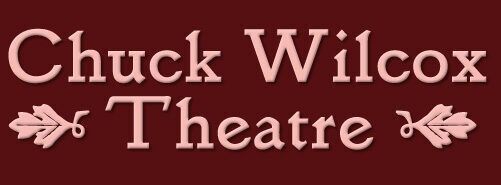My impersonation of Will Shakespeare evolved over the years. It began as a straight-forward introduction to the Colorado Shakespeare Festival (CSF) Plays. My audience was picnickers on the lawn before the theatre (The Green Show).
It was novel for people to have Will explain his play, and people immediately took the opportunity to ask questions. These question and answer interactions were exciting. I didn’t set out to become an expert but the many varied and interesting questions invited me into Will’s worlds: London, Stratford-on-Avon, and touring (mostly during Plague years when the Theatres were closed). Of the thousands, here are a couple of example questions and answers:
Did you really write the plays?
No, not in the way you are thinking. We created plays from old stories, new books, each other’s plays. There were no laws like yours – it was a compliment to have your work copied. There were people in the company who couldn’t read (in my time we were transitioning from oral to written learning). Actors would memorize their lines; if they changed them into something more interesting, so much the better. It’s fluid… (“To be or not to be. Aye, there’s the rub”…An early version of Hamlet) I wrote them, we wrote them, others stole them.
But you only had an eighth grade education?
Yes, but my eighth grade is different from yours. One left eighth grade completely prepared to go to work, with mathematics, rhetoric, reading of English, Latin and some Greek. That was also true in your country up until the early 1900’s. We also had oral history and stories and music available; vast amounts of information was stored in the memory, not on paper.
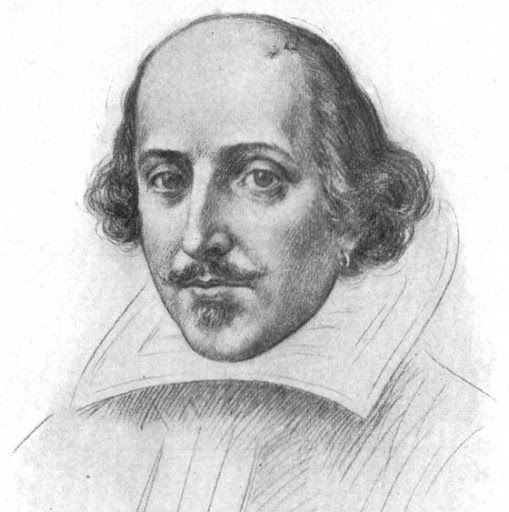
“We know what we are, but know not what we may be.”
— William Shakespeare
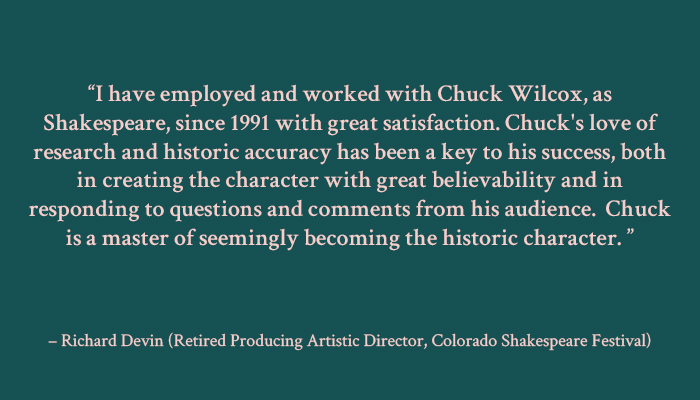
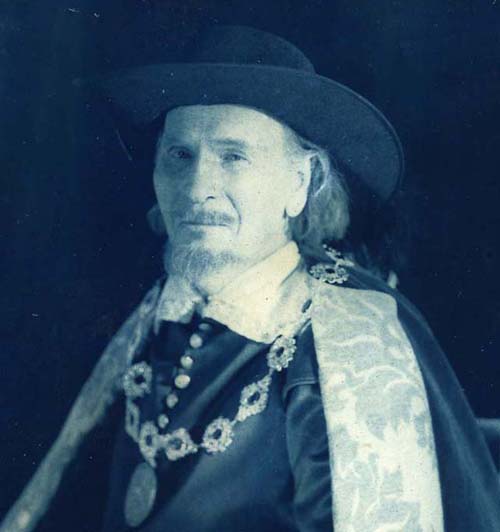
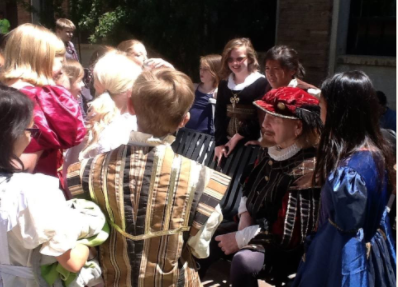
One day it occurred to me that half of Will’s writing life was spent working for King James VI&I. We are much more familiar with the idea that Queen Elizabeth sponsored, attended, and censored the theatre of that era. As I began to study King James I learned about a man who encouraged theatrical experimentation. Will’s company became The King’s Men.
James sponsored the research and publication of the King James Bible. Why? Because his time, like today, was divided between religious and political groups, each claiming to have the truth. Different groups used different bible translations to prove their points.
James gathered together a group of educated men from each group for the task of accurate translation. His goal was that each group would accept the new bible and at least be referring to one text as the “truth.”
James finally sent the dissenting Puritans to New England and Canada, and we inherit many of these arguments today. Jamestown, VA, is named for the king.
Chuck Wilcox as William Shakespeare
I no longer perform as either Shakespeare or King James. However, I actively coach people about teaching and directing Shakespeare, especially introducing Shakespeare in the early grades. I coach teachers and actors on being Fearlessly Creative with Shakespeare. I work with Shakespeare gardeners and guides about the use of plants in Shakespeare’s plays.
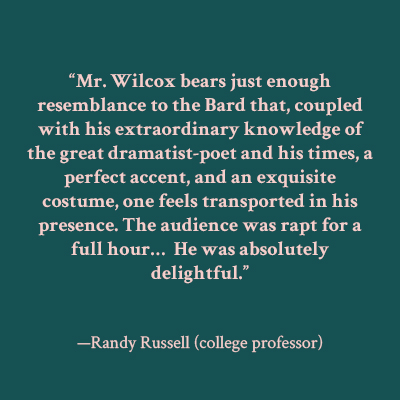
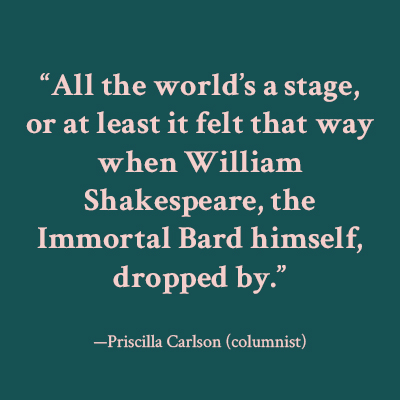
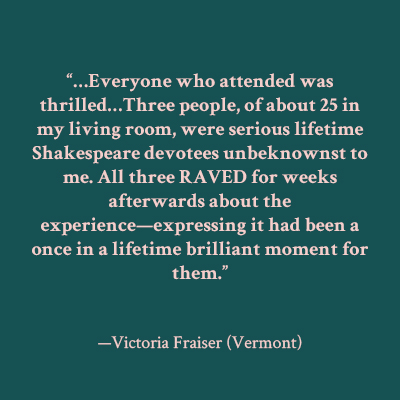
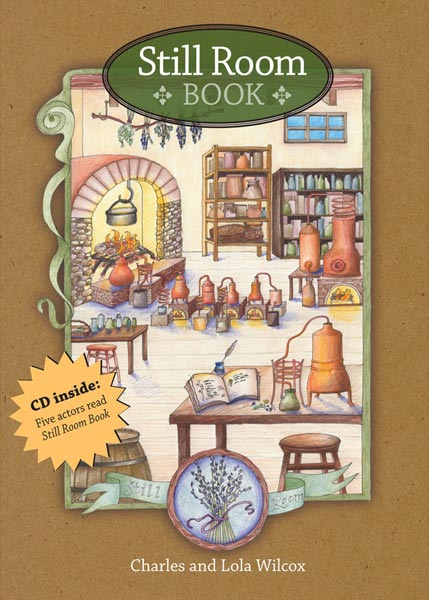
Still Room Book
for Colorado Shakespeare Garden
This Reader’s Theatre production is an exploration of three generations of ordinary people on an estate in 16th century England. Their lives center around the distillation of herbs and brews. Seven characters share their skills, recipes, and secrets with you. Any purchases of the Still Room Book are a fundraising project for the Colorado Shakespeare Garden. There are a few copies of the book left, including the audio recording on CD. See previews of the book and listen to audio samples on Lola’s site here.
I am exploring moving the book into a live performance, recorded, and available on YouTube for a wider reach of the material.
